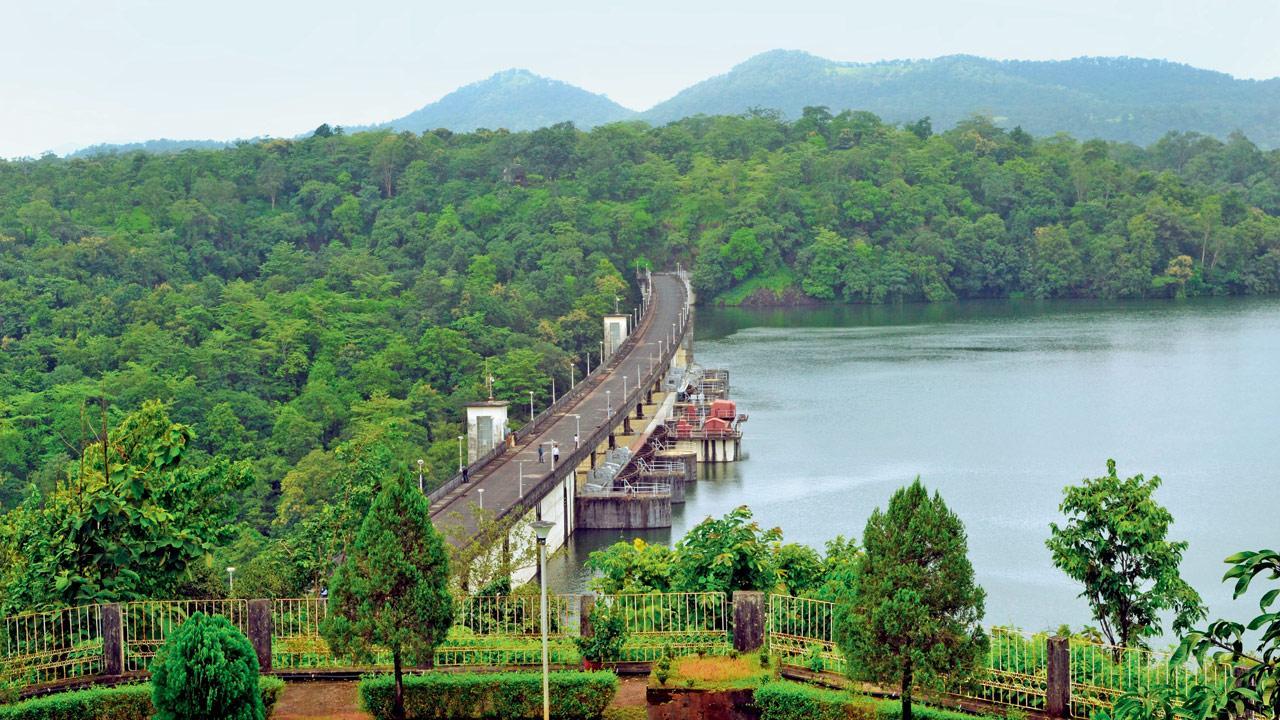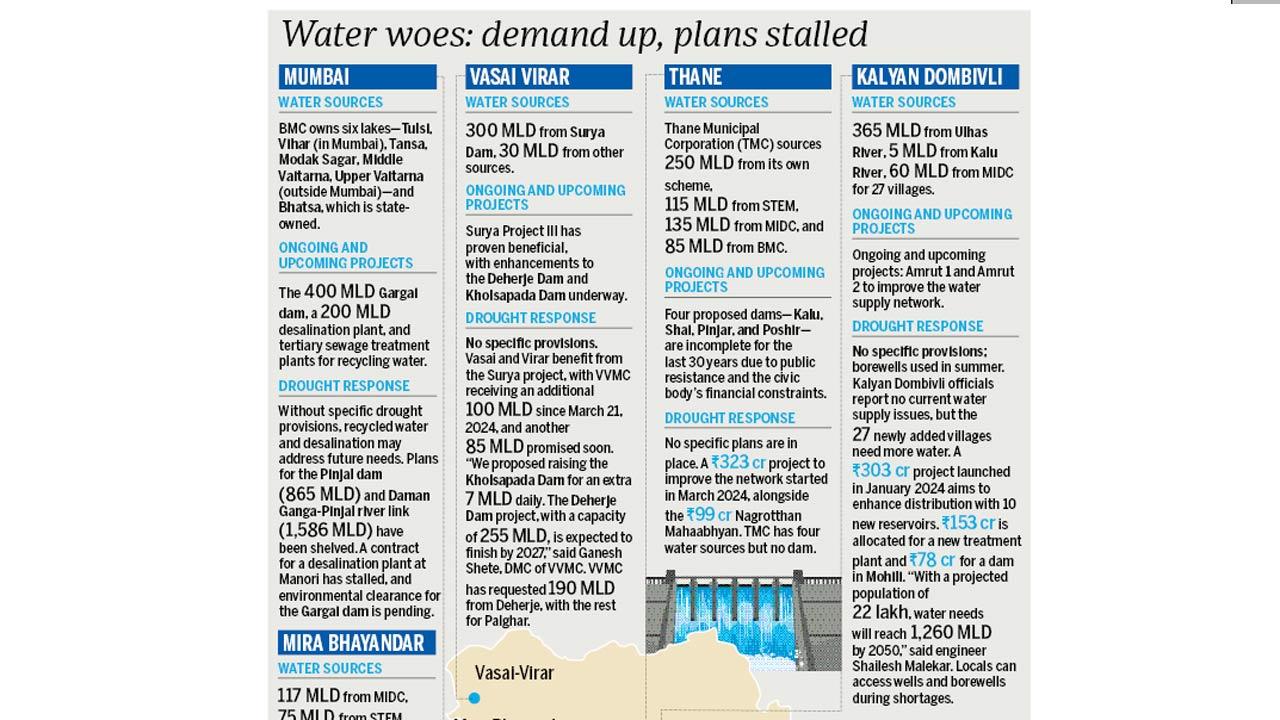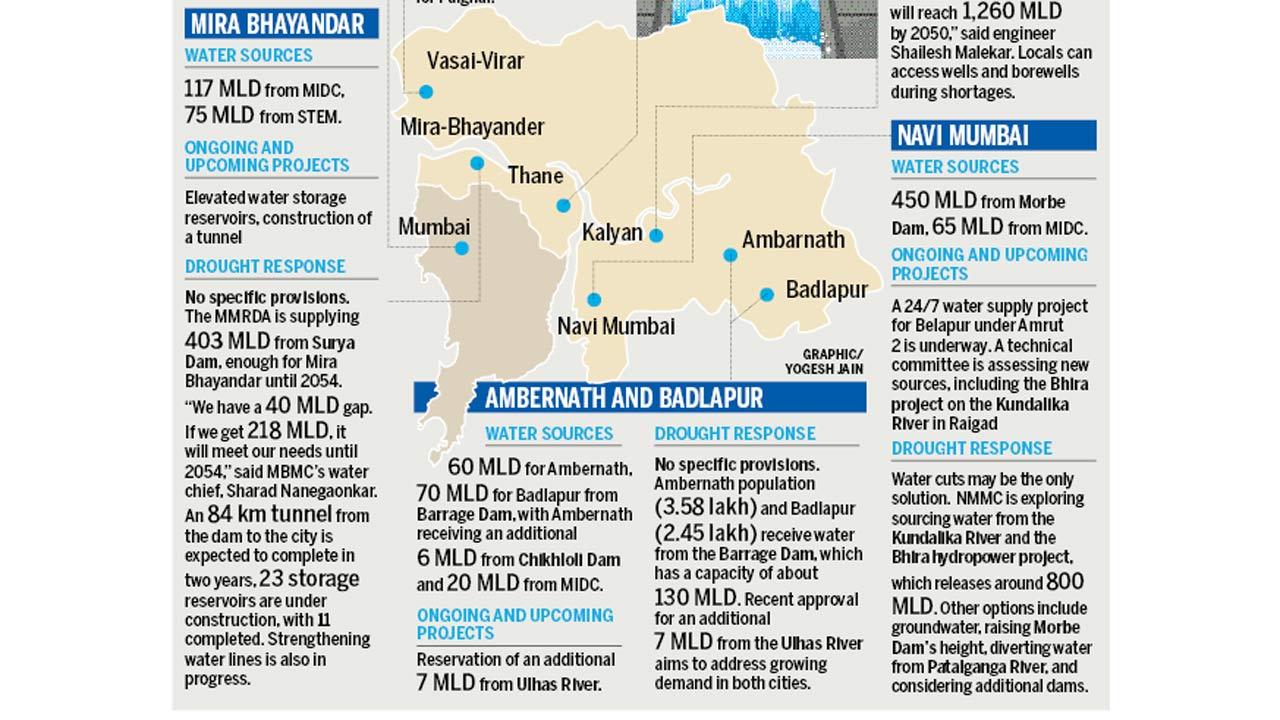Struggling for supply, the city eyes distant dams and costly solutions. Experts push for rainwater harvesting and recycling. mid-day also looks at how the city’s sisters are coping

Tansa Lake at Shahpur in Thane district over flowing. File Pic
As Mumbai and Navi Mumbai grapple with the pressing challenge of ensuring reliable daily water supply, they are turning to distant dam constructions over 100 km away to meet their needs. However, such projects require substantial investment and come with significant environmental implications. While the Konkan region, which includes the Mumbai Metropolitan Region (MMR), has so far avoided a severe water crisis, the increasing demand for sustainable water management practices has become critical. Recent droughts in 2009, 2014, and 2015 highlighted the vulnerability of the area, underscoring the need for innovative solutions beyond traditional dams.
ADVERTISEMENT
“When interior parts of the state faced severe drought, water was sourced from other dams, and tube wells were temporarily allowed. Even with low rainfall, Konkan’s dams always had enough potable water. Policies are based on past experiences and predictions, and I haven’t seen any proposals addressing drought conditions in MMR,” said Milind Kelkar, a former joint commissioner of Maharashtra’s Jeevan Pradhikaran, now part of a water expert committee working on a new dam for Navi Mumbai. He added that desalination could be a future solution as costs have dropped due to technological advances.
Is more dams the answer?
City planner Alan Abraham said, “Rainwater harvesting and recycling will greatly reduce our dependence on water transported from distant dams.” International cities combine water management with rainwater harvesting, groundwater use, and recycling. Madhukar Kambale, a water expert and former BMC official, explained, “Recycling sewage water is costlier, but rainwater harvesting is simple and effective.” The BMC introduced rainwater harvesting schemes a decade ago but lacks data on how many buildings implemented them. “Citizens hesitate to use recycled or stored rainwater,” said a BMC official.
Telescopic rates
“Telescopic rates could help curb wastage of water,” suggested Madhav Kambale and Milind Kelkar. Similar to electricity charges increasing after certain usage, BMC proposed telescopic water rates in 2020 for households exceeding the national standard of 150 litres per capita.

The policy, framed in 2012, aimed to reduce wastage, but political opposition blocked it. Abraham highlighted citizen responsibility, saying, “We waste water because it’s readily available. People wash vehicles daily with potable water and take long showers. Along with awareness, additional charges for excess water use are necessary.”
Experts suggestion
>> Sponge cities: Instead of covering cities with concrete, allow rainwater to seep into the ground to raise the water table. This also reduces drainage costs.
>> Rainwater harvesting: Urban areas should adopt rainwater harvesting. If private societies resist, corporations could set examples by using open spaces for the initiative.

>> Recycling water: Some IT parks and commercial spaces in Mumbai have adopted water recycling. BMC is working on plants, but distributing recycled water and public awareness are challenges.
>> Desalination: While costly, some international cities have adopted desalination as a solution.
>> Public responsibility: Citizens must be more mindful of water use.
>> Telescopic rates: Higher charges for excessive water use are essential. This requires individual water metres and round-the-clock water supply.
 Subscribe today by clicking the link and stay updated with the latest news!" Click here!
Subscribe today by clicking the link and stay updated with the latest news!" Click here!







